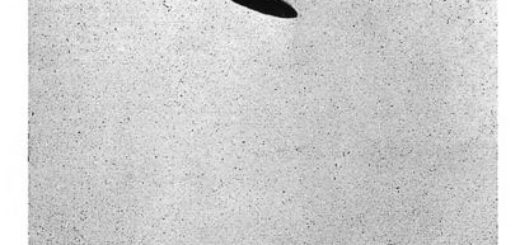What does the WHO do, and why has Trump stopped supporting it?

Trump has suspended funding to the World Health Organization over its coronavirus response
Coronavirus – latest updates
See all our coronavirus coverage
Peter Beaumont and Sarah Boseley
Wed 15 Apr 2020 15.25 BSTLast modified on Wed 15 Apr 2020 16.12 BST
Shares
956
World Health Organization logo
Photograph: Fabrice Coffrini/AFP via Getty Images
What is the World Health Organization’s remit?
The World Health Organization (WHO) was founded as the UN global health body in 1948 in the aftermath of the second world war with a mandate to promote global health, protect against infectious disease and to serve the vulnerable. It was inspired by the international sanitary conferences of the 19th century set up to combat communicable diseases such as cholera, yellow fever and plague.
Its current programme envisages expanding universal healthcare to a billion more people, protecting another billion from health emergencies and providing a further billion people with better health and wellbeing.
What does that involve?
In practical terms, the badly underfunded WHO acts as a clearing house for investigation, data and technical recommendations on emerging disease threats such as the coronavirus and Ebola. It also supports eradication of existing diseases such as malaria and polio and promotes global public health.
While its role on emerging diseases is most familiar in the developed world with its more resilient healthcare systems, its practical involvement is far more marked in the global south, where it has been working to expand basic healthcare, support vaccination and sustain weak and often stressed health systems through its emergencies programmes. Its 2018-9 budget was $4.8bn, which became $5.7bn when emergencies were included.
Why is the WHO under fire from Trump?
Trump has presented the freezing of US funding to the WHO as a direct response to what he claims was its slow reaction in raising the alarm over the global threat from the coronavirus and being too “China-centric” in its response. But the organisation’s funding was already in his sights on 7 February, when his administration was suggesting cutting the US contribution, about $400m annually, by half as part of $3bn cuts to US global health funding across the board.
The WHO, to whom the US theoretically contributes roughly 10-15% of its budget as its largest contributor, has been appealing for an extra $1bn to help fight the coronavirus.
1:34
Trump halts US payments to World Health Organization – video
Advertisement
The allegation by Trump and his supporters that the WHO was slow to warn of the risk of human-to-human transmission, and that it failed to cross-examine Chinese transparency early on, is largely not borne out by the evidence. WHO technical guidance issued in early January was warning of the risk of human-to-human transmission and the organisation declared coronavirus a public health emergency of international concern a day before Trump announced his partial ban on flights from China.
Instead, it appears Trump is following a familiar playbook: finding others to blame amid his own handling of the coronavirus outbreak, which has included calling it the “Chinese virus”, blaming the previous Obama administration and taking aim at state governors.
How does the WHO’s performance in the coronavirus crisis compare with the 2014-15 Ebola outbreak?
The WHO, under the then-director general, Margaret Chan, was savaged from all sides for responding so slowly to an Ebola outbreak that began in a remote forested part of Guinea where the borders with Sierra Leone and Liberia were virtually non-existent. By the time the WHO acted, six months late, it had reached the dense cities.
The fallout for the WHO was serious and undermined its credibility. US critics suggested scrapping it and setting up a new global public health body, although the idea did not take off and President Obama did not support it. An independent report commissioned by Chan said the WHO’s funding was inadequate and governments had not increased their contributions in years. Dr Tedros Adhanom Ghebreyesus, the current director general, and all other candidates for the role after Chan stood down pledged to reform its governance and funding.
Most health experts agree the organisation under Tedros has performed much better over the coronavirus.
How big an impact will the US funding cuts have?
Coronavirus: the week explained – sign up for our email newsletter
Read more
While the suspension of funding by the US for 60-90 days is relatively small – not least because the US is so far in arrears in its annual payments – the potential for a general US withdrawal from global health funding under the cover of this announcement would be very serious and felt most profoundly in places that need the most support.
Even before the Trump announcement, the organisation was looking at potential cuts to already underfunded programming. Such impacts could be felt in programmes already complicated by the coronavirus, such as vaccination for communicable diseases and in building up early warning systems and resilience to deal with diseases such as Ebola in African countries.
Advertisement
Devi Sridhar, the chair of global public health at the University of Edinburgh, called Trump’s decision extremely problematic, noting that the WHO was leading efforts to help developing countries fight the spread of Covid-19. “This is the agency that’s looking out for other countries and leading efforts to stop the pandemic. This is exactly the time when they need more funding, not less,” she said.
What other impacts will there be?
Trump’s assault on the reliability of WHO data and early warning systems, in pursuit of his own agenda against China, threatens its leadership role. While global health diplomacy is a balancing act when dealing with countries like China, which have a poor record on freedom of speech, transparency and human rights, the information provided to health officials by the WHO is designed to be scientifically and clinically useful in the control of the spread of disease.
In the midst of a global crisis…
… the truth is a powerful tool. The news has rarely been so relentless, so bewildering. Which is why we at the Guardian dedicate time for every story we publish to checking and double-checking what is true and what is not. With so much misinformation out there, this already-disorientating crisis can be difficult to navigate. As an independent news organisation, we make it our mission to deliver honest, unbiased, accurate journalism.
We believe every one of us deserves equal access to reliable news and explanation. So, unlike many others, we made a different choice: to keep Guardian journalism open for all, regardless of where they live or what they can afford to pay. This would not be possible without the generosity of readers, who now support our work from 180 countries around the world.
We have upheld our editorial independence in the face of the disintegration of traditional media – with social platforms giving rise to misinformation, the seemingly unstoppable rise of big tech and independent voices being squashed by commercial ownership. The Guardian’s independence means we can set our own agenda and voice our own opinions. Our journalism is free from commercial and political bias – never influenced by billionaire owners or shareholders. This makes us different. It means we can challenge the powerful without fear and give a voice to those less heard.
Your financial support has meant we can keep investigating, disentangling and interrogating. It has protected our independence, which has never been so critical. We are so grateful.
We need your support so we can keep delivering quality journalism that’s open and independent. And that is here for the long term. Every reader contribution, however big or small, is so valuable. Support the Guardian from as little as €1 – and it only takes a minute. Thank you.



 Creators of mankind
Creators of mankind Description of “Tall white aliens”
Description of “Tall white aliens” Where they came from?
Where they came from? About hostile civilizations
About hostile civilizations The war for the Earth
The war for the Earth “Tall white aliens” about eternal life
“Tall white aliens” about eternal life Video: “Nordic aliens”
Video: “Nordic aliens” Aliens
Aliens Alien encounters
Alien encounters The aliens base
The aliens base UFO
UFO Technology UFO
Technology UFO Underground civilization
Underground civilization Ancient alien artifacts
Ancient alien artifacts Military and UFO
Military and UFO Mysteries and hypotheses
Mysteries and hypotheses Scientific facts
Scientific facts


















